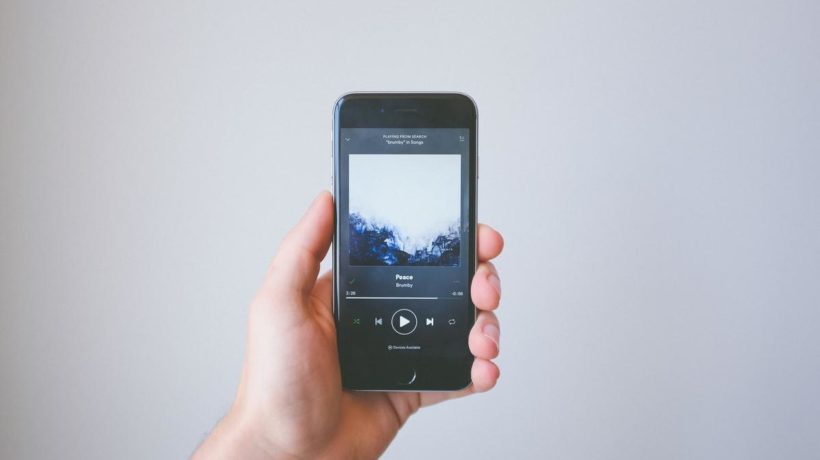The Recording Industry of SA (Risa) has issued a statement to warn people that pirating music and supporting unscrupulous sources is a theft that hurts artists. The message comes as piracy has been on the rise during this period of lockdown in South Africa.
The organisation is raising awareness about piracy and has made the call to music lovers to access music from legitimate platforms such as Vodacom My Muze, MTN’s MusicTime!, Apple Music, Spotify, Google Play Music, Tidal, Joox, Simfy Africa, Deezer and YouTube Music.
“Our records show the most popular infringements are on some of the biggest hits in South Africa right now; leading the pack are “eMcimbini” by Kabza de Small; “Love Letter” by Blaq Diamond; “Tender Love” by Sha Sha featuring DJ Maphorisa; “Umlilo” by DJ Zinhle; and “Love You Tonight” by MFR Souls. Also targeted are “You’re The One” by Elaine; “SAD” by Jethro Tait; “Jerusalem” by Master KG and Nomcebo; and “The Box” by Roddy Ricch,” Risa said.
Gospel ensemble Joyous Celebrations have been feeling the setbacks of the coronavirus, having already had to postpone their Easter shows. “It’s terrible. The company we are working with, Sony, is looking into dealing with piracy. On our side, the only income we make is through the shows. So if there is piracy with the music that we sell, then it means that stream of income is also affected in a big way.
“I can’t even talk about the effects of the postponement of shows. It means business is shut down. So we are hoping that the lockdown will be lifted,” Joyous Celebrations’ co-founder Jabu Hlongwane said. The award-winning ensemble’s latest offering, Joyous 24, has been heavily pirated and songs were being shared on a WhatsApp line that publicly asked music lovers to text so they could receive the music.
“Musicians make a living from sales of their music, and keeping piracy alive will only result in an impoverished music scene. We understand that the current lockdown in the country has left many in need of entertainment, but let’s support our artists the right way and not commit a criminal offence,” said Nhlanhla Sibisi, Risa’s chief executive.
For now, the group is making sure their presence is felt on social media platforms and the internet. “One of the challenges is that a lot of South Africans believe in the physical album, but they can’t access that because everything is shut down. We are depending on the little we can make through the internet and social media, and that space is being pirated, so this is a double blow for us,” Hlongwane said.
But local music artists are not the only ones looking for other avenues of income during this global period of quarantine. The coronavirus pandemic has led to the cancellation of tours, festivals, promotional trips and studio sessions, and in the midst of this, musicians have taken to their Instagram Live and other social media platforms to virtually entertain their fans.
English crooner James Blake has twice taken to his piano to play fan favourites and unexpected covers; Christine and the Queens are performing every night in the luxurious Ferber Studios where she is working and living during France’s lockdown; and in March, John Legend played live as part of Chris Martin’s “Together at Home” series, featuring a guest appearance by his wife, Chrissy Teigen. Just this weekend, the Global Citizen movement broadcast their Together At Home virtual concert, where some of the biggest names in music including Jennifer Lopez, Michael Buble, as well as some South African talent – Black Coffee, Sho Madjozi and Cassper Nyovest – performed for fans on a global livestream from their homes.
For these particularly successful musicians, it hasn’t been necessary to ask for donations, but smaller, independent artists have gone to the extent of asking fans for a small donation for what is now deemed as their music “services” through their social media. Another way artists have been earning money is by broadcasting their performances on platforms that allows hosts to charge viewers to tune in to the livestream, such as Crowdcast. Indie-pop singer Dent May was successful in this endeavor. He charged a minimum of a $5 donation for the livestream but most people chose to donate more. Approximately 170 people tuned in and the session earned around $1350, which then had to be split with other artists with whom he performed. However, May points out: “That sort of amount is on par for a local show where there’s three or four bands on the bill, and each is splitting the door money with every member.”
In addition, other artists are teaching fans how to play instruments such as the guitar through one-on-one virtual sessions. Imagine learning the chords to one of your favourite songs from the artist themself? At any other time, this venture would have had the potential to create big earnings, but band leader Jules Jackson from UK band Big Moon, is cognizant of the financial strain most people are suffering from right now, and instead has chosen to keep the fee as reasonable as possible whilst making a profit.
While music is a healing and unifying force during this time of difficulty and uncertainty, Dent May also believes that artists freely “giving away” their work devalues their work across the board. Instead, he believes in artists charging for their labour, just as everyone in other industries expect to be paid while working in whatever capacity they can at this time.
One can’t argue that this is a fair approach and perhaps is something to think about the next time we tune into a live session or request a song from an artist we love. While their music and art are uplifting the world while we’re locked up indoors, dealing with job losses and other tragedies, perhaps it’s our responsibility to help make artists’ lives easier too, and be attentive of where – and how – we obtain the entertainment we consume.







